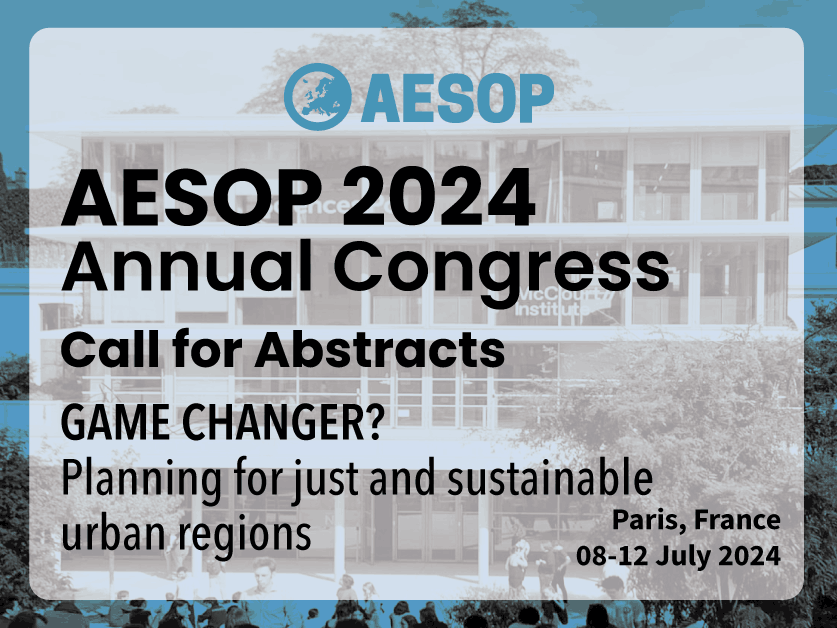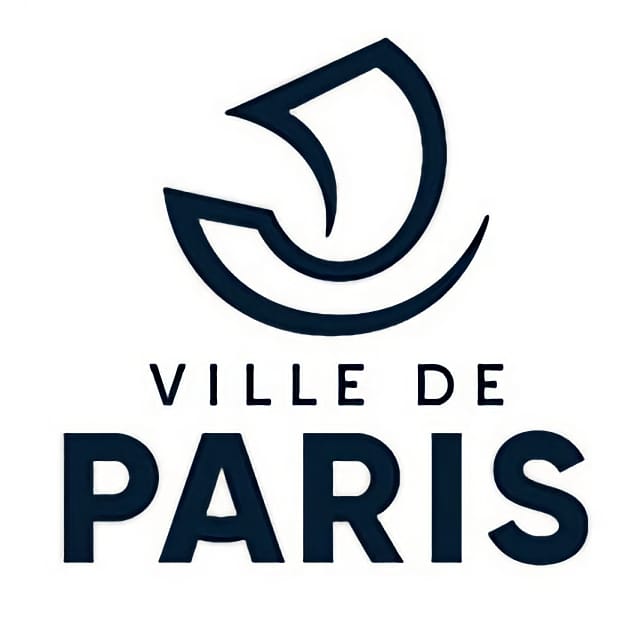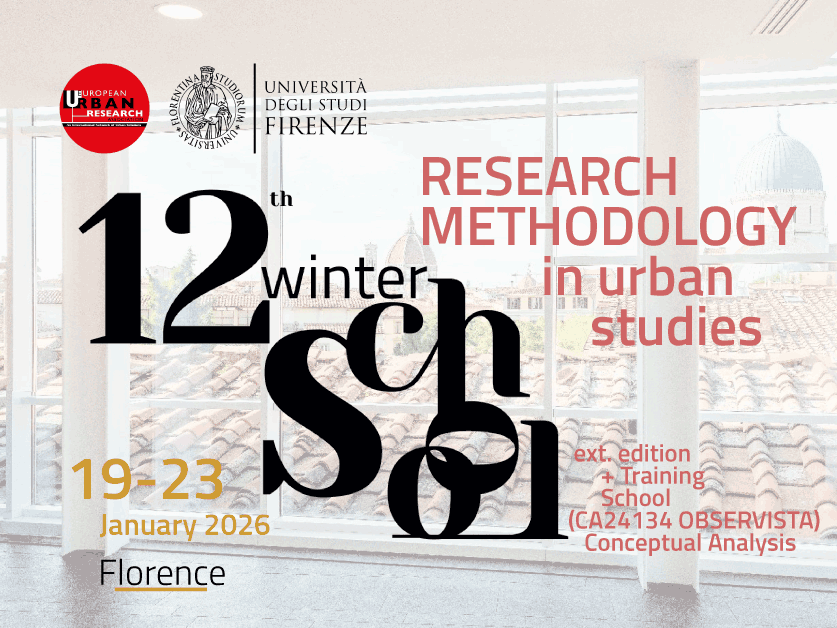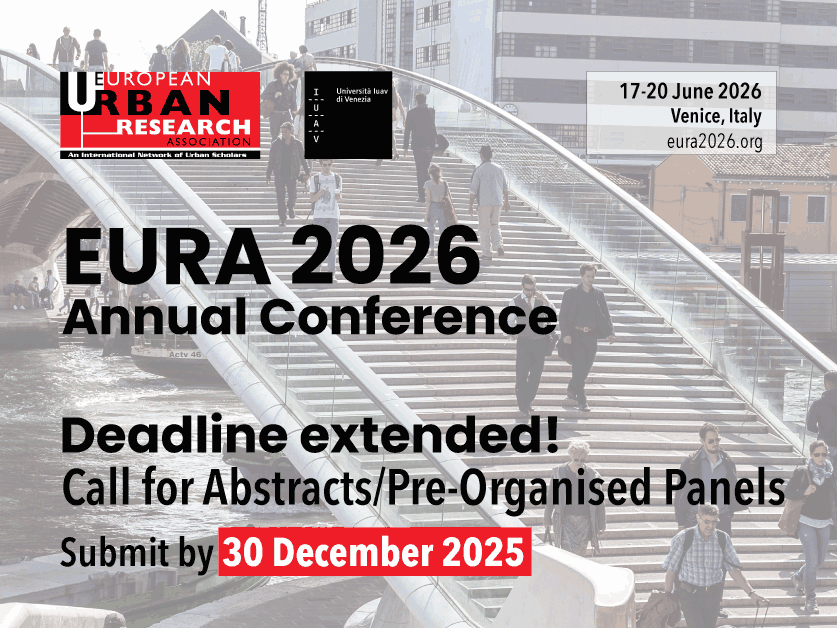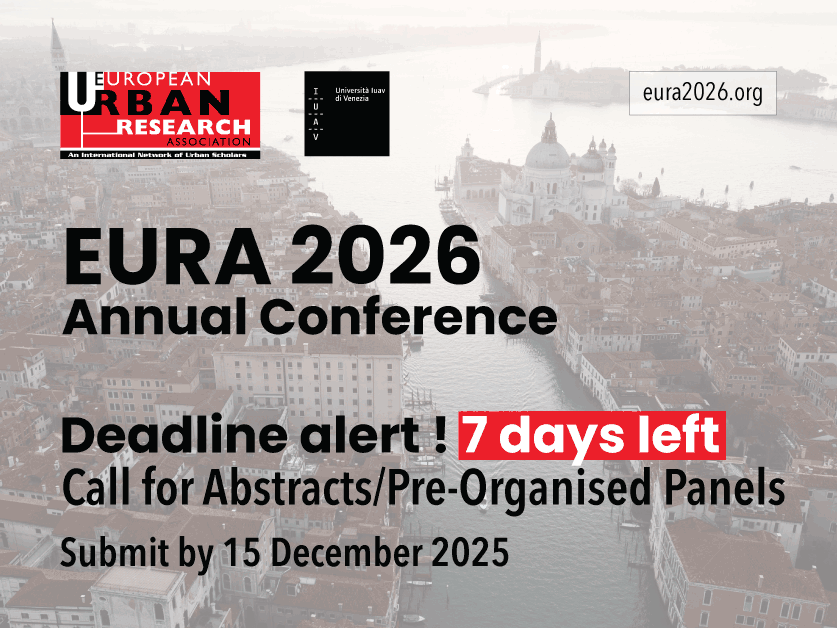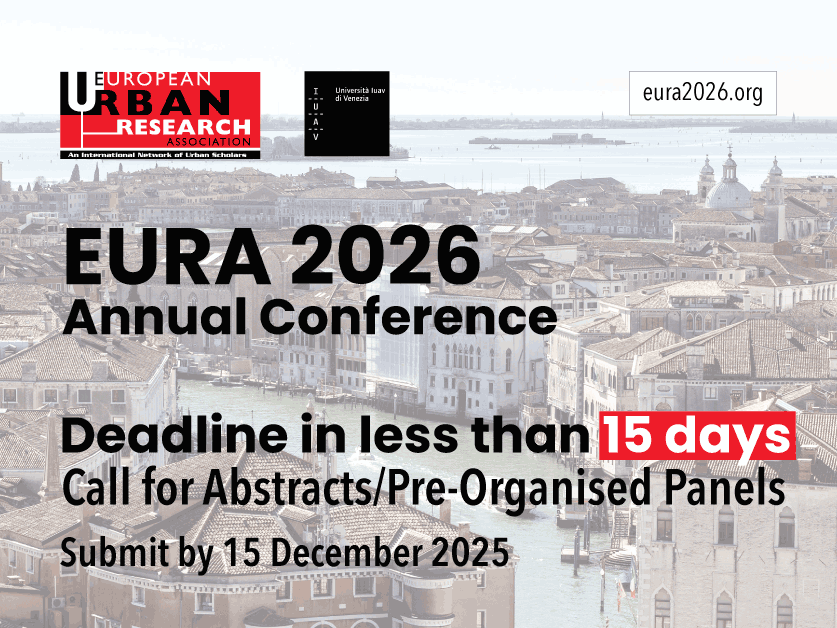
10th PhD Winter School on Research Methodology
20/12/2023
EURA 2025 – Call for a host
21/12/2023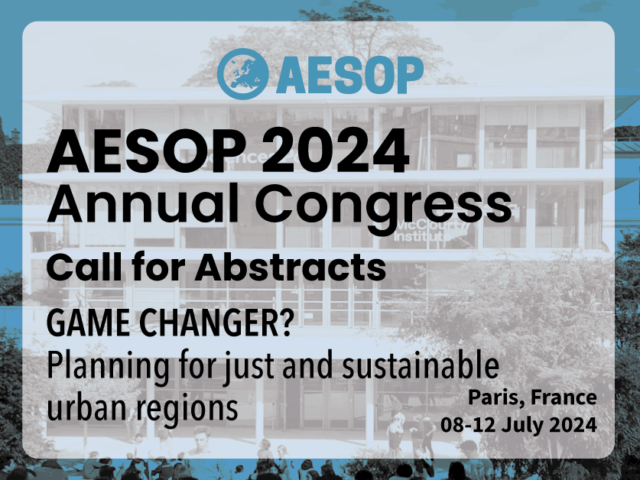
AESOP 2024 ANNUAL CONGRESS
Call for Abstracts
Deadline for Abstract submission: January, 31 2024
Dates: July 08-12, 2024
Location: Paris, France (Sciences Po)
Organised by: AESOP, SciencePo with the support of the Paris Municipality
Topic:
GAME CHANGER? Planning for just and sustainable urban regions
Overview:
The Paris Congress will examine a key question at the heart of the multiple ongoing transitions: what exactly constitutes a game changer? For over a century, European urban planning has depended heavily on publicly-driven land urbanization, particularly during urban expansion periods. Moving towards an entrepreneurial approach has brought about a fresh balance between the public sphere and market actors in recent decades.
The shift has brought about new collaborative methods that have become popular with globalization, which has led to urban regeneration projects. The trend of hosting international events is a component of this change, resulting in successful outcomes at times, though more frequently presenting risky patterns. Yet, urban growth and redevelopment mask unsustainable social and environmental costs. Increasingly, people demand an approach that restores balance to urban ecosystems and reconstructs the natural environment.
However, the issue is more complex than it initially appears. Macro-level development processes have become more uncertain due to unexpected events such as the outbreak of the COVID-19 pandemic in 2019. Furthermore, managing local change has become more challenging, nuanced, and intricate. Implementation of projects has traditionally been a difficult aspect of public policy, particularly in the context of urban initiatives. Therefore, planners must fully understand the complexity of implementation mechanisms to achieve a new and innovative form of practical and trailblazing planning. These challenges necessitate reflection on the authenticity and efficiency of traditional plans, highlighting the significance of local transformation. The Paris Congress will examine a key question at the heart of the multiple ongoing transitions: what exactly constitutes a game changer? For over a century, European urban planning has depended heavily on publicly-driven land urbanization, particularly during urban expansion periods. Moving towards an entrepreneurial approach has brought about a fresh balance between the public sphere and market actors in recent decades.
The shift has brought about new collaborative methods that have become popular with globalization, which has led to urban regeneration projects. The trend of hosting international events is a component of this change, resulting in successful outcomes at times, though more frequently presenting risky patterns. Yet, urban growth and redevelopment mask unsustainable social and environmental costs. Increasingly, people demand an approach that restores balance to urban ecosystems and reconstructs the natural environment.
However, the issue is more complex than it initially appears. Macro-level development processes have become more uncertain due to unexpected events such as the outbreak of the COVID-19 pandemic in 2019. Furthermore, managing local change has become more challenging, nuanced, and intricate. Implementation of projects has traditionally been a difficult aspect of public policy, particularly in the context of urban initiatives. Therefore, planners must fully understand the complexity of implementation mechanisms to achieve a new and innovative form of practical and trailblazing planning. These challenges necessitate reflection on the authenticity and efficiency of traditional plans, highlighting the significance of local transformation.
Submission preparation checklist:
- Choose the most appropriate track for your submission.
- Suggest an alternative track in the "comments to the editor".
- If your paper is intended for a special session please declare it in the ''comment to the editor''.
- Ensure that the submission is original and has not been previously published.
- Avoid submitting the abstract as a Word file or PDF file; instead, paste the text into the designated text box for the abstract.
- Ensure that the abstract does not exceed 600 words (strict).
- Provide three to five keywords relevant to your submission.
- Provide up to five references and adhere to the Harvard referencing style throughout your submission.
- Maintain a high standard of English. If English is not your native language, consider utilizing automatic proofreading software.
Key dates:
Call for abstracts: OCTOBER 1ST 2023
Opening of registration: DECEMBER 1ST 2023
Abstract submission deadline: JANUARY 31ST 2024
Early bird registration deadline: MARCH 29TH 2024
Full paper submission deadline: MAY 30TH 2024

